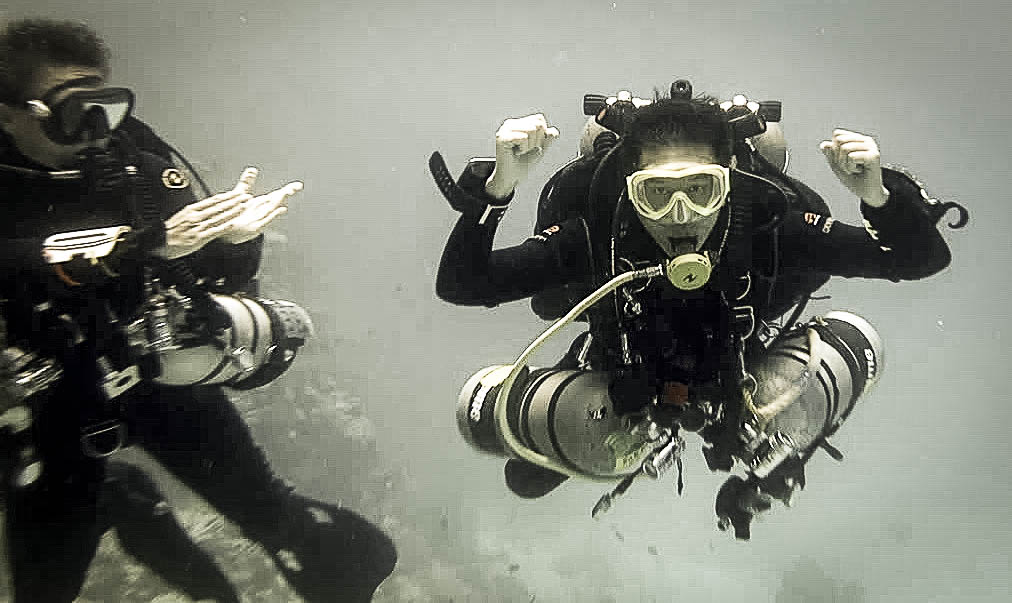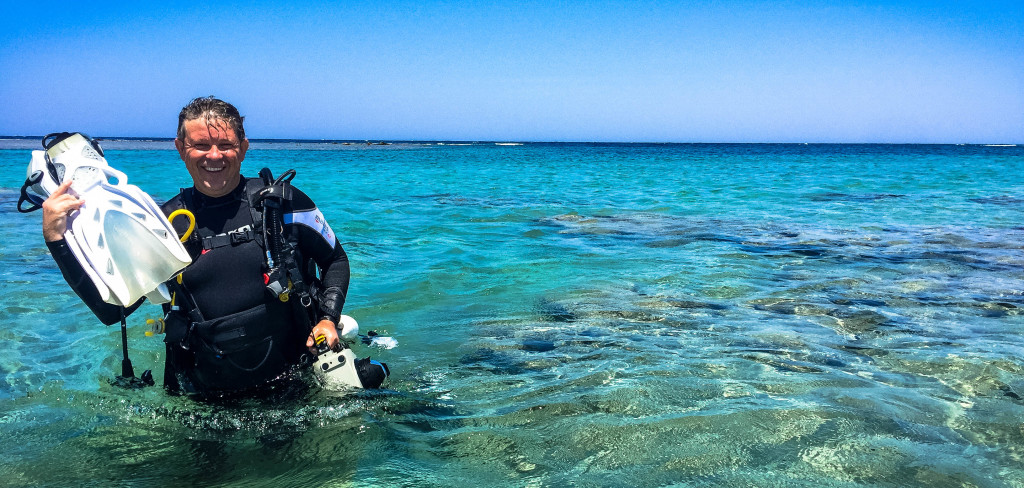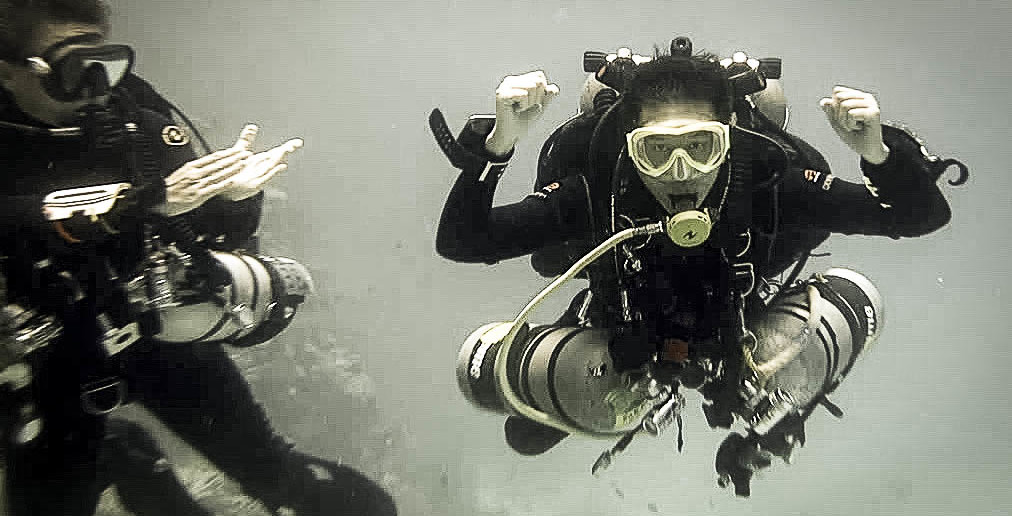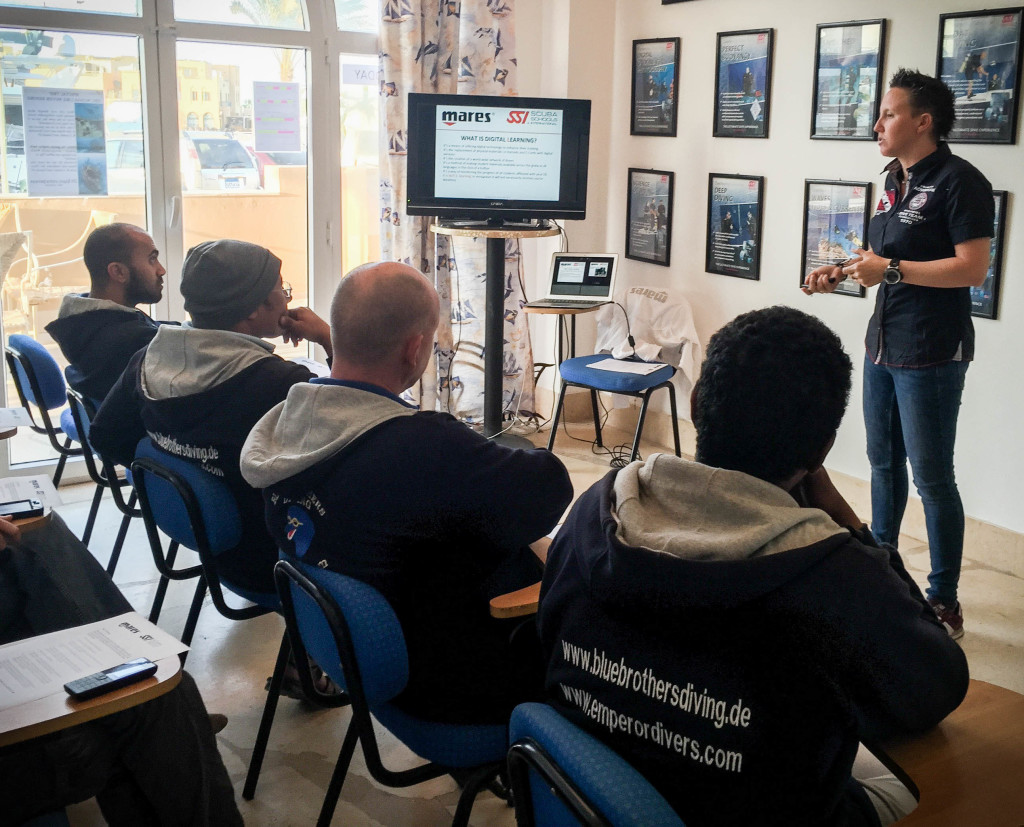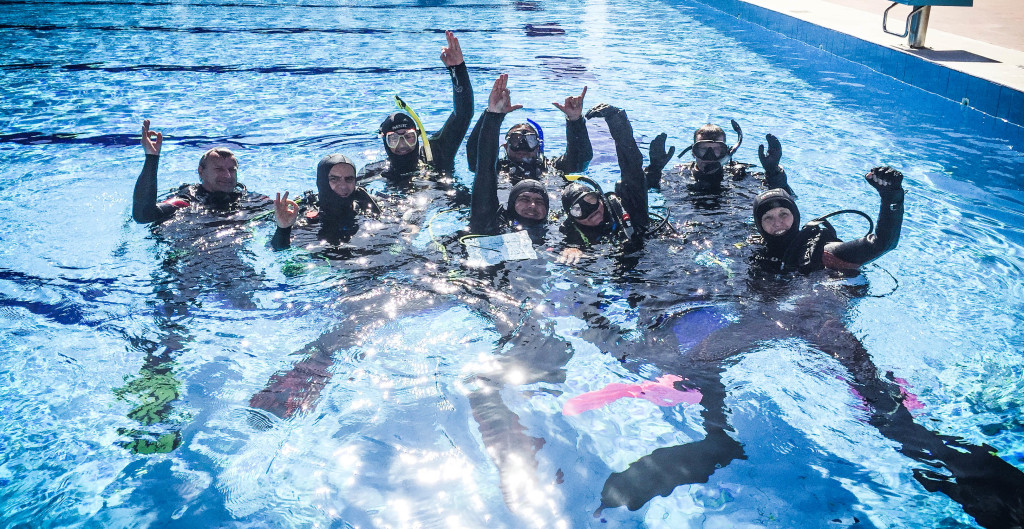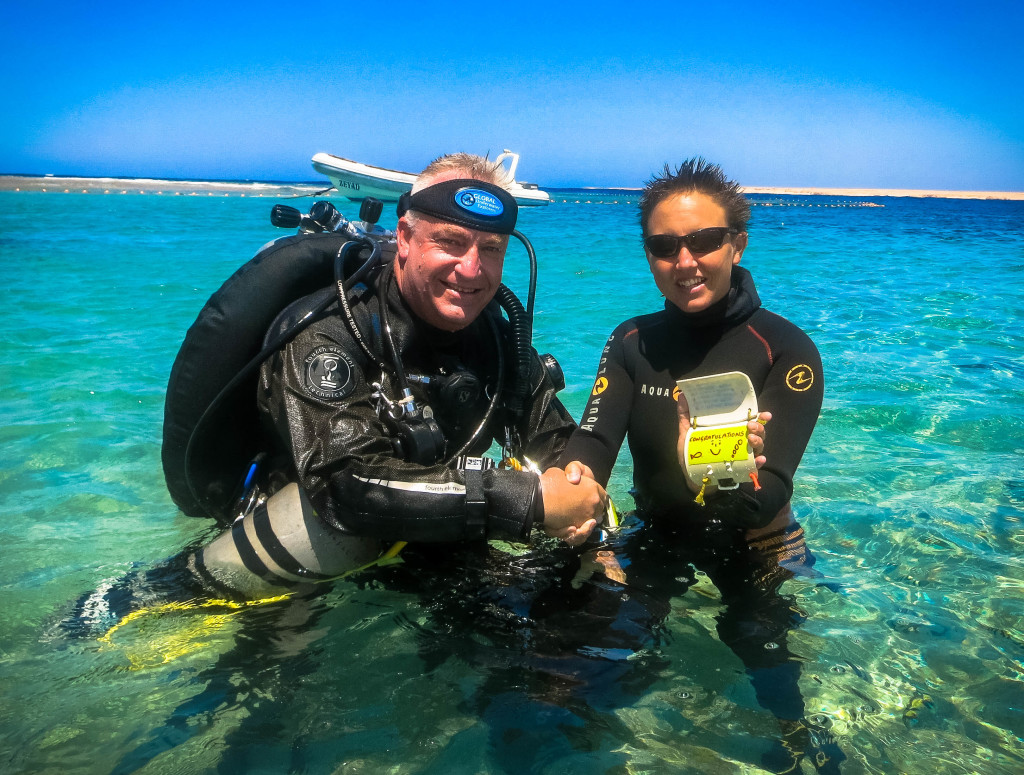“When are you going to get a proper job?” is a question that has been asked to me for most of my adult life. Mostly from my mother, but the question was also heard from well-meaning family members. (Of course it was said in a joking manner but I am 100% sure that the belief was, at that time that I was wasting my life by not pursuing a “normal career.”) Coming from a family of teachers, Lawyers, Hoteliers and Engineers to name a few industries, I still think to this day heading into the Scuba Industry was not a respected profession by the people around me. However, saying that, that very same mother who would question me about a “proper Job” would also always remind me of the fact that you only get one life and you need to live it. I was blessed that my mother never tried to hold me back from anything that I wished to pursue.
However, believe me or not, I didn’t consciously set out to enter the diving industry on a full time basis. Becoming a scuba Instructor was merely a way to increase my qualifications, which was going to escalate my employment opportunities when I was looking for a “Real” job as a School Physical Education teacher.
Now, its 15 years later and I still have not got that “real job”!
The Scuba Industry
There are as many reasons for why for people learn to dive so it is impossible to list them all. Some activities seem to be perfect precursors for scuba diving. Active swimmers take to diving pretty easily. People who enjoy snorkeling also have an advantage. They have already seen some of the fish life beneath the sea and so are “hooked” already. Snorkelers usually have an easy time transitioning to scuba diving.
People who currently enjoy active outdoor activities are also the type of persons who are drawn to scuba diving. With its increasing popularity, scuba has become “fashionable”. Take a look at the holiday section of most magazines and you will see the “him and her picture perfect” fully kitted out in neoprene and wearing scuba equipment whist walking along a lush white beach with palm trees in the background. Scuba diving is reaching a pinnacle in media pop culture. Scuba Diving has moved from an activity for a select few adventurous individuals into a global recreational activity available for all the family. Nearly half of all new divers are women and it is also used as non-discriminatory therapy for physically challenged individuals. Diving is no longer a sport for daredevils; it has become a lifetime activity that you can enjoy with your friends and family. It’s a means to learning more about the beauty and intricacies of life on our planet.
Why consider becoming an Instructor?
Teaching is a challenging job with many unique frustrations, but the rewards of teaching are unquestionable. Instructors get incredible joy in seeing the difference they make as students gain new insights, become more interested in a subject, physically develop skills and learn about themselves. As an Instructor, you see your efforts everyday as you use your intelligence and creativity to help students become excited about and learn about the scuba diving world.
For many people, their work is a means to an end. They work for a paycheck in order to live their lives. But those called to teach have a true vocation. To those with whom you interact most during your day of teaching – the students – you are not an employee but a friend, a mentor and a guide to the world. An Instructor makes a difference in the world by enabling each of his or her students to fully maximize their talents, skills and character. Being an Instructor is a job that offers a great deal of variety. Each day or week, instructors get to work with a new group of students with unique personalities, experiences and ideas.
While scuba classes have mandatory standards that instructors are expected to follow, it is the instructor who will decide what will happen in the lesson. Not many jobs provide an individual with so much room to be creative and autonomous each day. Additionally, you will never learn a topic better than when you start to teach it. Students always ask the most interesting questions, prompting you to dig deeper, explore, investigate and learn more about the aspects of scuba diving.
Over the last 15 years, I’ve had the pleasure of training scuba divers of all ages and backgrounds. So I can tell you with all honesty that being a scuba instructor is one of those jobs you enjoy doing every day of your life, if it was not the case I would not still be doing it! But, believe it or not, having fun just isn’t enough, because after awhile, even having fun can get boring. What has continued to motivate me over the years is the challenge. What other activity allows a teacher to deal in subjects as diverse as physics, physiology, marine science, mechanics, physical education, psychology and even public relations? You also have to have some pretty good counseling skills. Scuba instructors bring a whole new meaning to the term “jack-of-all-trades.” Our job believe it or not is at times very tough, demanding and often unappreciated, but it’s never boring.
The Reality
To the outside person, the Scuba industry is full of young guys and girls running around in the sun with perfect tans, making a wetsuit look good and swimming with Dolphins in tropical warm waters. This, unfortunately, is a delusion and mistaken belief. Becoming a Scuba Instructor isn’t easy—and neither is actually being one. But remembering why you go into this industry in the first place helps to stay focused when those challenging days come around, and take pride in your successes. I will emphasis at this point that teaching is a passion, not a paycheck! If the idea is to make loads of money, then this is not the industry for you! It’s incredibly hard work but, it is the most rewarding job out there and every day is different.
Is being an instructor for me?
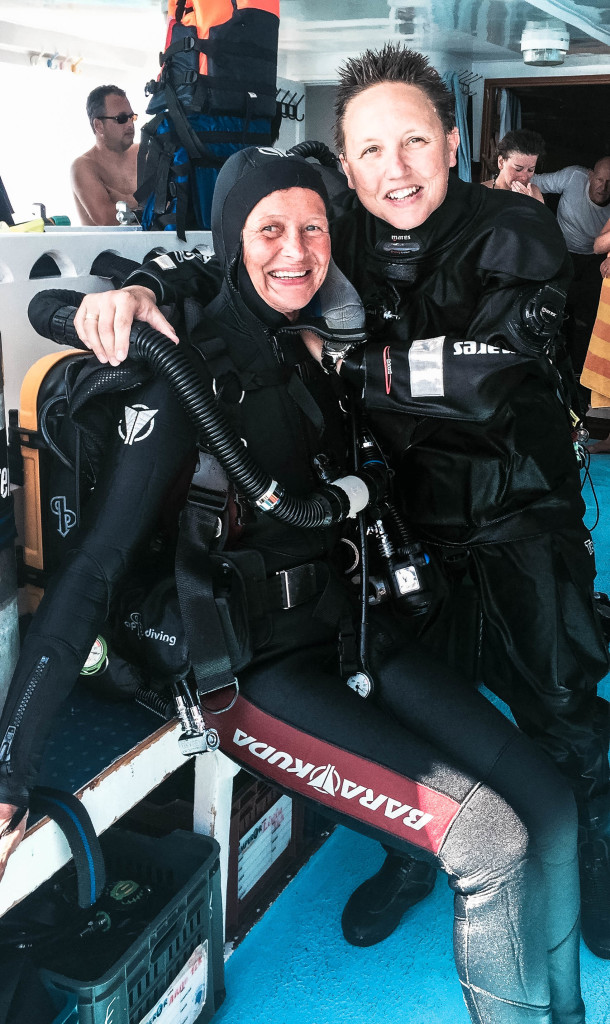 Now, as much as the life of a Scuba Instructor has many benefits it for sure is not a suitable path for everybody! In fact, you may not be cut out for it at all. A scuba instructor has to enjoy and be capable of working with a wide range of personalities and circumstances. If your only motivation to become a diving educator is that you love diving, then forget about it. People skills are just as important and often more so than diving skills. Patience is perhaps the most important requisite; and a close second is flexibility coupled with the willingness to work long and highly irregular hours.
Now, as much as the life of a Scuba Instructor has many benefits it for sure is not a suitable path for everybody! In fact, you may not be cut out for it at all. A scuba instructor has to enjoy and be capable of working with a wide range of personalities and circumstances. If your only motivation to become a diving educator is that you love diving, then forget about it. People skills are just as important and often more so than diving skills. Patience is perhaps the most important requisite; and a close second is flexibility coupled with the willingness to work long and highly irregular hours.
Effective communication and human relations skills are as essential as diving skills. What’s equally important is a professional appearance and demeanor. Scuba Divers are sophisticated travelers. The last thing they want to see after spending a good chunk of their paycheck is to visit a dive destination is some beach bum in a dirty T-shirt. They put their lives in our hands, so they expect someone who can instill professionalism and confidence.
The issue of responsibility is important to both understand, accept and cannot be ignored. Regardless of how much fun it may be, you can never take the responsibility of the instructor role lightly. If you do, people can die; it’s that simple. This can be a harsh realization, and anyone who lacks the commitment or maturity to accept such duties shouldn’t even consider the instructor route.
Preparation to become an instructor requires mastery of diving theory, which includes a thorough grounding in diving physics, physiology, equipment mechanics and even a little marine science and oceanography. You’ll also need near-perfect diving skills, and an ability to deal calmly with stressful and unexpected situations like entanglements or out-of-air emergencies. In terms of physical prowess, you will be expected to complete watermanship tests to prove your physical abilities in and on the water and that you hold a minimum level of physical fitness that is expected of an infidel in a responsibility role.
During your Instructor Training Course (ITC), you should expect to learn a great deal about teaching, both theoretical and practical. You will learn how to plan and conduct classroom, pool and open-water lessons. You’ll learn how to organize training activities to maximize safety and efficiency. And, you’ll learn the standards and logistics of conducting the various programs you’ll be certified to teach
Is it worth it?
Personally I have never regretted my decision to remain within the Scuba Diving industry. In the early days, I was blessed
to be able to work for one of the most reputable scuba diving operators who not only supported their instructors in the work place but also encouraged us as instructors to continue training and always strive for the next level whilst maintaining high levels of standards and service. Over the years I have continued to develop my personal skills and have learnt the scuba diving industry as a business. This has had a direct effect on the growth of my own scuba diving company and subsequent future scuba diving ventures.
I now look to the future and see continued personal growth for me as an Instructor Trainer and scuba diving ambassador. I can think of nothing better than to open up this amazing industry to others who could take inspiration from me and look to also becoming the scuba instructor.
“Success isn’t just about what you accomplish in your life, it’s about what you inspire others to do”



